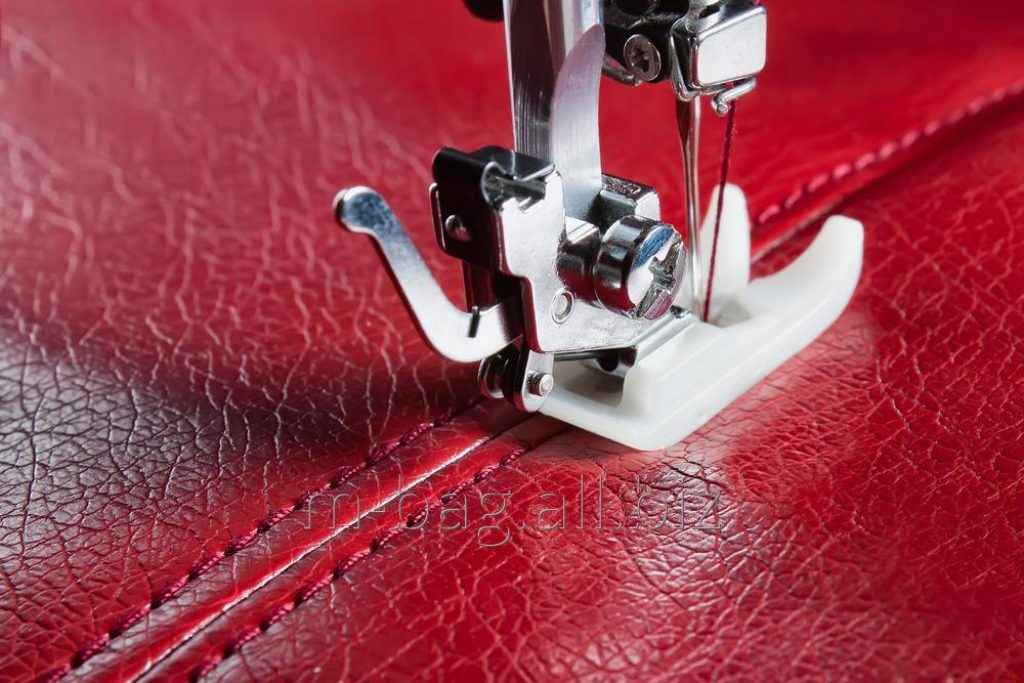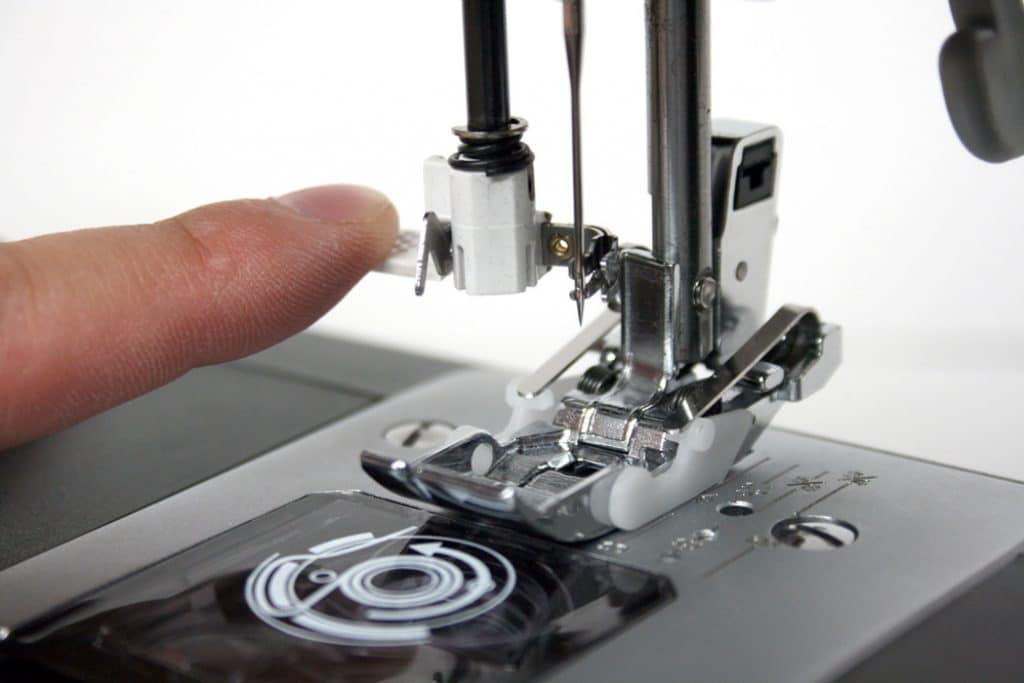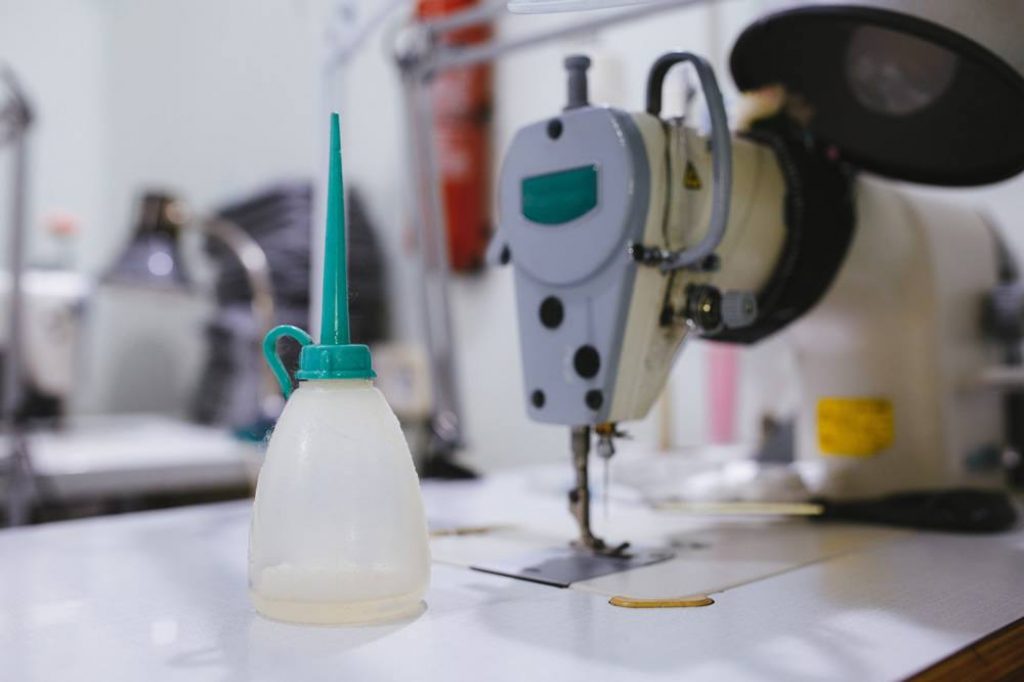

You need to carry out some heavy duty work for a factory business sewing great amount of clothing in a limited time – what is the perfect tool for the task? Regular heavy duty machine can withstand much, but an industrial rate will be a challenge even for them. Commercial sewing machines are made to serve long time dealing with multiple projects for professional purposes.
To cope with an increasing number of projects, you would have to purchase the best industrial sewing machine. This will not only ensure that you can sew several projects in a short period but you will also get better and more professional looks. Choosing an industrial sewing machine is not an easy fete and that is why we have highlighted a couple of features that you should consider before you buy one. Some of these features include the motor used, size, speed of machine, oiling and lubrication and even the bed type. Other additional features include the noise produced, feeding features and warranty.
In our research, we spent months trying to figure out the best industrial sewing machine for you. We also relied on a number of online sources and reviews to ensure that we give you a comprehensive overview of all the products we reviewed. In the article, you will find a table, in-depth reviews of all products and a final buying guide to let you know what is important before making that leap.
More features: 110V, quiet servo motor
The Juki DDL 8700 is a great sewing machine that houses a powerful servo motor, which makes it great for domestic use. Measuring 48 x 20 x 48 inches with a weight of about 30 pounds, this machine is quite portable than others in the market. Furthermore, you will also be impressed by the speed of the sewing machine as it has a maximum sewing speed of about 5,500 stitches per minute.
Juki DDL 8700 has a servo motor that has made it a popular choice among sewing enthusiasts. Why do people prefer to use this model over other models by the same company? Well, the servo motor is so quite that you will be amazed. You will no longer have to deal with the irritating clicking sound that you find in old sewing machines. The sewing machine was designed with a novel engineering technology that not only keeps the noise low but also reduces the vibration to a minimum. Between having a perfectly quiet motor and a relatively large sewing space, you can rest assured that you will get great speed and perfect stitches should you decide to invest in the Juki DDL 8700.
Since the Juki DDL 8700 is a single needle machine, it uses a straight stitch mechanism that means it was specifically manufactured for light and medium density fabrics. Using it on hard materials such as denim and leather will not result in a good outcome. This machine is great at making difficult sewing jobs comfortable.
More features: triple feed, 14 mm foot lift, adjustable height of the walking motion, servo motor
The Consew 206RB-5 may seem familiar to you especially if you have used the Consew 206R before. This may be because the former is a bigger and improved version of the latter. What does this mean? With the Consew 206RB-5, you will be well-equipped to deal with more challenging and tough tasks such as making tents, camping equipment, umbrellas, sports equipment and even shoes.
Although the Consew 206R is a portable machine, the Consew 206RB -5 can be mounted on a table. This means there will be a lot more features on the sewing machine. For example, it has a separate bobbin storage compartment and bobbin winder that is located on the right side of the machine. The table also comes with a ruler, a lamp and a cone thread stand.
A key point to note is that this machine can only perform straight stitches and you can even get space for an extra-large bobbin that can be fixed onto the machine. You will also find a large reverse stitching lever and a stitch length of about 10mm that is changeable too. To ensure that fixing and maintenance sessions are quick and easy, the Consew 206RB-5 has a centralized lubrication system. All in all, this is a superb industrial sewing machine if you want good quality stitches for a range of materials.
More features: backlatching function, double-type thread tension control mechanism
Do you need an advanced sewing machine that does not break the bank? The JUKI MO-6714S is just the right machine if you need a powerful device that responds to the different types of sewing materials. Furthermore, this industrial serger can also offer various processes that ensure you have beautiful and delicate seams. You are probably thinking that such a machine is likely to be noisy but this couldn’t be any further from the truth.
The JUKI MO-6714S features a unique technology that reduces the average operating noise while also increasing the durability of the sewing machine. To further enhance reliability of the industrial sewing machine, it has both lower and upper bar bushings of the needle air unit.
This machine comes with the needle-thread take-up mechanism and a looper thread take-up mechanism. With these features, the sewing machine can easily switch its responsiveness from a light-weight to a heavyweight material without any tensions. This feature also allows the seams to correspond well with the elasticity of the materials despite the sewing speed which can reach up to 7000 stitches per minute. To ensure that the sewing machine does not overheat, it comes with a cooling fan and an oil filter to improve durability.
More features: automatic lubrication, 13 mm foot lift, clutch motor
The Yamata FY8700 is a great machine for those who would love a bit of quality sewing fused with great speeds. This machine is known for its versatility as it is useful for a number of different materials whether soft and hard fabric. It is also fitted with a noise-decreasing device that is still reliable even at its top speed of 5500 stitches per minute. When purchased, it comes with a sewing machine table, a clutch motor, tools, belts, 1725 RPM and a 110 volt supply.
This industrial sewing machine measures 48 x 20 x 48’’, which means that it is a portable machine and you can use it in various places. Its important features include a thread stand bobbin, pan or knee lifter, 10 extra needs, 5 more bobbins and an instruction manual. Another great feature that will make you fall in love with the Yamata FY8700 is its automatic lubrication that ensures you never run out of oil. With this feature, you should never be worried about spoiling your sewing machine. It also includes a 13 mm foot lift and a powerful clutch motor to ensure that you can mend the tough and more challenging fabrics such as tents, sports equipment, shoes etc.
Once you set out on purchasing the best industrial sewing machine, it is important to consider some of the critical factors that you should look out for. There are a lot of options when it comes to purchasing an industrial sewing machine and one of them is the motor. Depending on the type of work that you want to accomplish, selecting a powerful motor will ensure that you can accomplish even the hard tasks. Other important considerations that are discussed below include the size of the machine, speed, power, lubrication and noise levels among others. This buying guide will help you make an informed choice before you purchase your industrial sewing machine.
With all the fuss about purchasing an industrial sewing machine, you are probably wondering why you should get one. An industrial sewing machine has a lot of advantages over other conventional sewing machines. One of the best things about getting an industrial sewing machine is that they are suited for different needs. It is a great sewing machine for making clothes at an industrial rate. You will likely find some tough industrial sewing machines that can carry out all sorts of work such as the Consew 206RB-5. However, most sewing machines carry out one or two functions pretty well. 
A tailor or dressmaker will have a different sewing machine from a manufacturer that makes car seat covers or leather sofas. Some sewing machines are designed to suit light or medium fabric while others are meant for thick materials. Most manufacturers will clearly state the type of sewing machine. In the event that they don’t, always know that the height of the presser foot is recommended to be at 3mm higher than the thickness of your material. If this is the case, your fabric, whether canvas or even leather, can easily move in and out of the needle. You will also need to consider different types of sewing, since you will need a commercial embroidery machine for decorative part of work. Any other type of commercial sewing might make you consider different types of devices, like an upholstery sewing machine and a sewing machine for leather, which is much smaller yet still fitted to this kind of work. Understanding your needs before you purchase your industrial sewing equipment will help you to narrow down your options before settling for one.
There are a couple tips that you should always be aware of when you want to use your industrial sewing machine. Here are some of them to ensure that you can properly use your sewing machine:
Change your seam allowance: You should always reduce your seam allowance from the normal 5/8’’ seam allowance found in domestic sewing machines to about 1/4’’. This will not only help you save the total time it takes to trim and grade the seams but will also help in notching and clipping the seams. Also, this easy step will also help create a smoother look.
Ensure that you cut cleanly: It is important to find a good table at home that can be your slicing table. Also, choose a rotary cutter and mat to match this table.
Cut your pattern to the slicing lines: Another great tip would be to cut your pattern to the slicing lines by pressing it flat.
Never pin the pattern to fabric: To help pin the pattern, you can use weights to contain the structure.
Always be prepared: this will help you to fit your pattern. Ensure that you have everything required before you set out to start sewing. These may include threads, buttons and even zippers if the need arises.
Cut all the required pieces at once: You can easily cut a large textile. To make this easy, you can tie all the bits with a similar design.
Sew as many seams consistently: Hold the items end to end and stitch them in one seam to another. As a rule of thumb, you should only stop sewing when you need to cross any other seam.
Perform similar processes at the same time: You should always strive to complete similar businesses at the same time to enhance effectiveness of your sewing. Sew the details first then you can assemble the garments later, for example, before joining the side seams. Remember that sewing in a tube is more time consuming as compared to sewing it smoothly.
Never use pins: If you have been using a sewing machine for a long time then you know that pins decrease your speed, distort your seams and can even break your needle. Instead, you can use both your hands to sew. Always match the corners when you start sewing and at the end of your seams as you keep sewing.
Press your seams: Ensure that you press your seams open on woven garments before you do any other type of pressing or stitching over them. You should use a steam iron or even a clapper to press your garment if you want a clean and smooth look. It is also recommended that you press the details first. This includes pressing the collars, waistbands, cuffs, sleeves and ultimately your body.
Get a pressing area: A good pressing area will prevent the garment from dangling over the ends while pressing. You can use a chunk of plywood that is protected with wool and muslin but this may take up some space.
Having a comprehensive set of features that you should consider can prevent you from making a poor choice when buying an industrial sewing machine. These are some of the features that you need to consider.
The motor that you choose will ultimately decide your sewing experience. There are two types of common motors, the clutch and servo motors. Clutch motors produce a significant amount of noise but they are ideal for any thick or challenging materials such as leather or canvas. The Yamata FY8700 is an example of a sewing machine with a clutch motor and works great for harder fabrics. The clutch motor is a power horse and you will feel this power immediately you press down the pedal.
For lighter or medium fabric, going with the servo motors is a great choice. They are more quiet and will generally offer you more flexibility when it comes to the stitch speed. These motors also consume less energy and are more user-friendly allowing for delicate stitches. They only work when the pedal is pushed unlike the clutch motors.
Before you order your purchase, it is critical for you to assess the shipping and unit dimensions to ensure that the product can actually go through your front door. This is because some sewing machines are already assembled units that are packed in pallets. The space you have in your home will affect the choice of machine that you order especially with regards to portability and body construction. For those with a lot of space, say in their factory, the large traditional ones will not be a problem. The Consew 206RB-5 is an example of a large sewing machine that you can always rely on.

Industrial sewing machines are known for their high speed. Most of the sewing machines offer a speed ranging from 1000 to 5000 stitches per minute. Some even offer a higher stitching speed such as the JUKI MO-6714S, which has an impressive speed of about 7000 stitches per minute. This is higher than most domestic sewing machines. It is, however, worth noting that the faster speeds do not necessarily mean that they are reliable especially for thicker fabrics.
Industrial machines consume a lot of power, and this makes it an important consideration especially if you are using it at home. At home, electricity bills are a concern hence the need to keenly monitor the amount of power that you use on these appliances. Most of these industrial sewing machines are used for heavy sewing work and it is not unlikely that your electricity bills could run into the hundreds if not thousands of dollars. Fortunately, there are other Eco-friendly brands such as the Yamata FY8700 that have a low power consumption.
You are probably wondering if the bed type matters when sewing or if it should be up on this list. If you are, be sure that the bed type matters a lot. There are three bed types for you to consider. These include post-bed types that have a high and even small surface beneath the needle. Their work is to help you focus on the stitches, especially if you are making decorations. Cylindrical bed types, on the other hand, are useful for those small and hard to reach places such as inside purses. Flat-bed types are the conventional beds that you use when there is no need for post-bed and cylindrical types.

Almost all industrial machines need to be properly lubricated for them to work properly. In fact, the ideal machine should be able to self-lubricate in case you forget to lubricate it. The Yamata FY8700 is a great option if you are looking for an automatic lubricated machine. Always try to avoid purchasing machines that require manual lubrication as it may damage the sewing machine in the event that you forget to check it.
The feeding feature of a sewing machine is an interesting feature that you should also consider when looking to purchase an industrial sewing machine. This essentially determines the way in which you feed the fabric to the machine. Drop feed systems are the most common in which the little teeth on the sewing machine take charge of the fabric and determine the way it moves. You can also find manual feed machines where you determine the control and direction of the fabric. Other feed types include the puller feeds, needle feed and even the walker foot feeds.
Traditional industrial sewing machines are generally noisy especially if they have a clutch motor. Although this may not be much of a problem if you are using them in a factory, you may have to reconsider it if you are using one at home. Fortunately, there are a lot of manufacturers that market products that have some noise cancellation technology. If you can’t find these products then consider using one with a servo motor, which are popular for their low noise levels. The JUKI DDL-8700 is an example of a sewing machine with an in-built technology designed to reduce noise levels.
Price is also something that you need to consider before purchasing an industrial sewing machine. Be sure to get something that works according to your needs but is also affordable. The Consew 206RB-5 is an affordable sewing machine that will meet all your needs despite its price.
All in all, there are a lot of industrial sewing machines that will meet your needs regardless of whether you do some bulky sewing or if you need to sew thick fabrics such as canvas. We have given an outline of some of the best industrial sewing machines on the market. Our top 3 picks are:
The JUKI DDL-8700, which is known for its low noise levels, reliability and great sewing speeds. The second choice is the Consew 206RB-5 that is popular for sewing heavy fabrics such as leather. It is also reliable, highly affordable and relatively versatile than the rest. Lastly, we have the JUKI MO-6714S. One of the best industrial sewing machines that not only offers you reliability but also one of the best stitching speeds on the market.